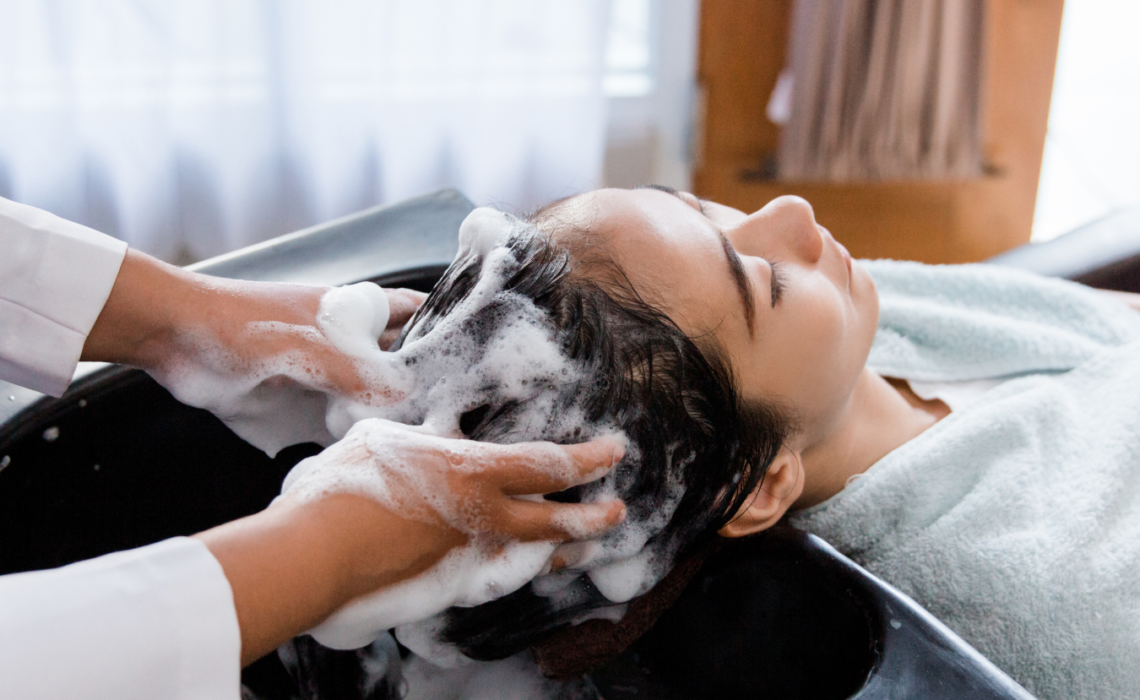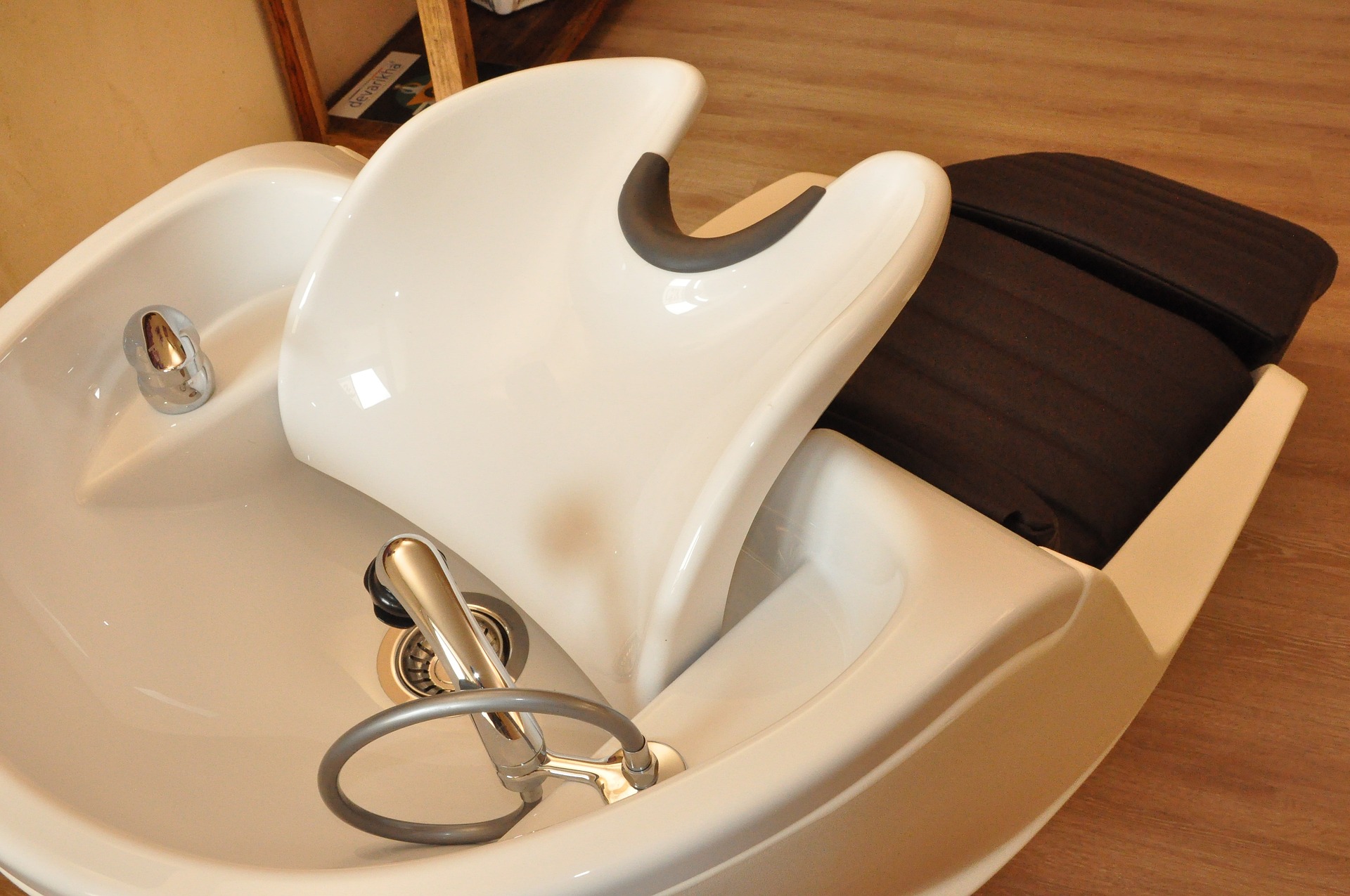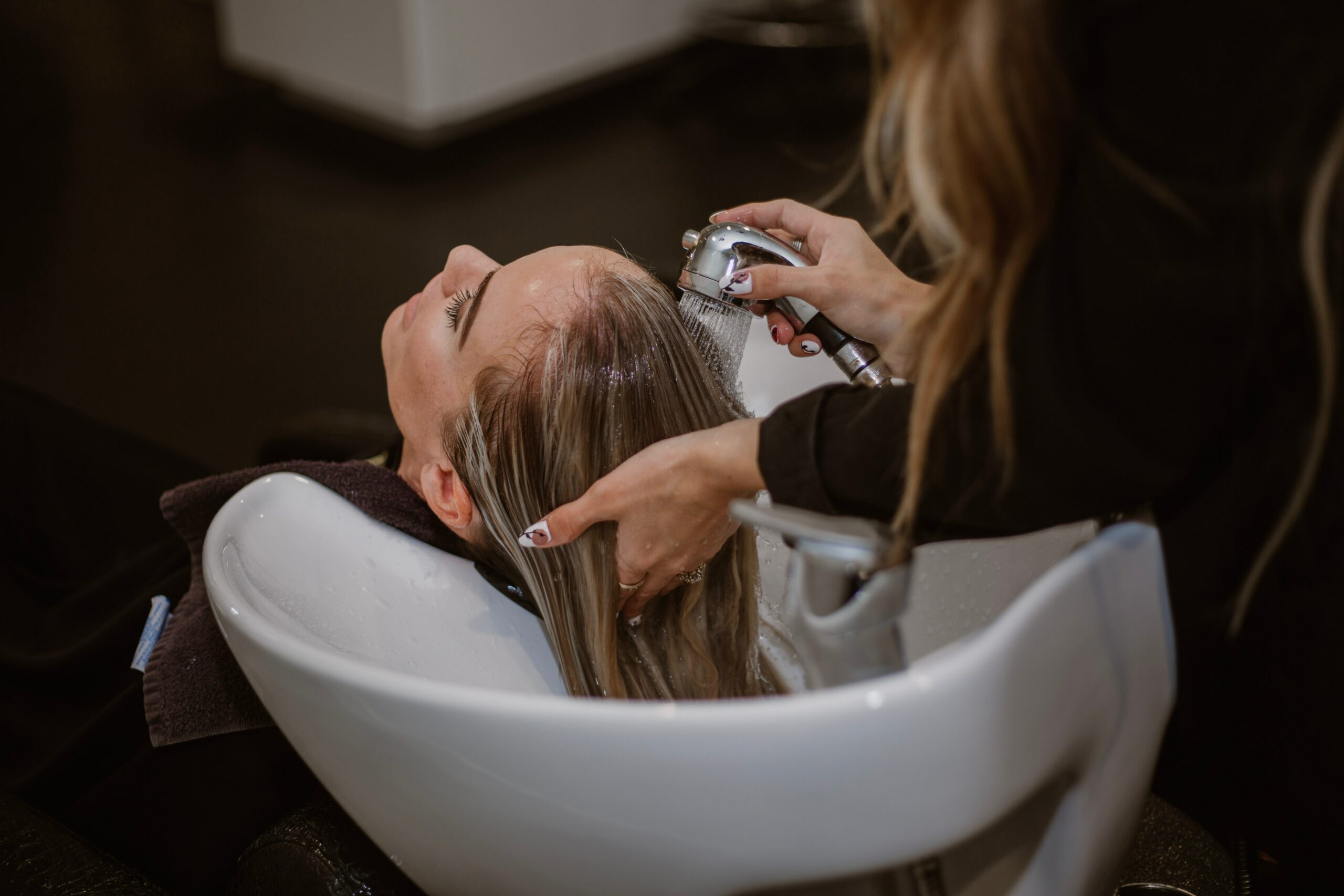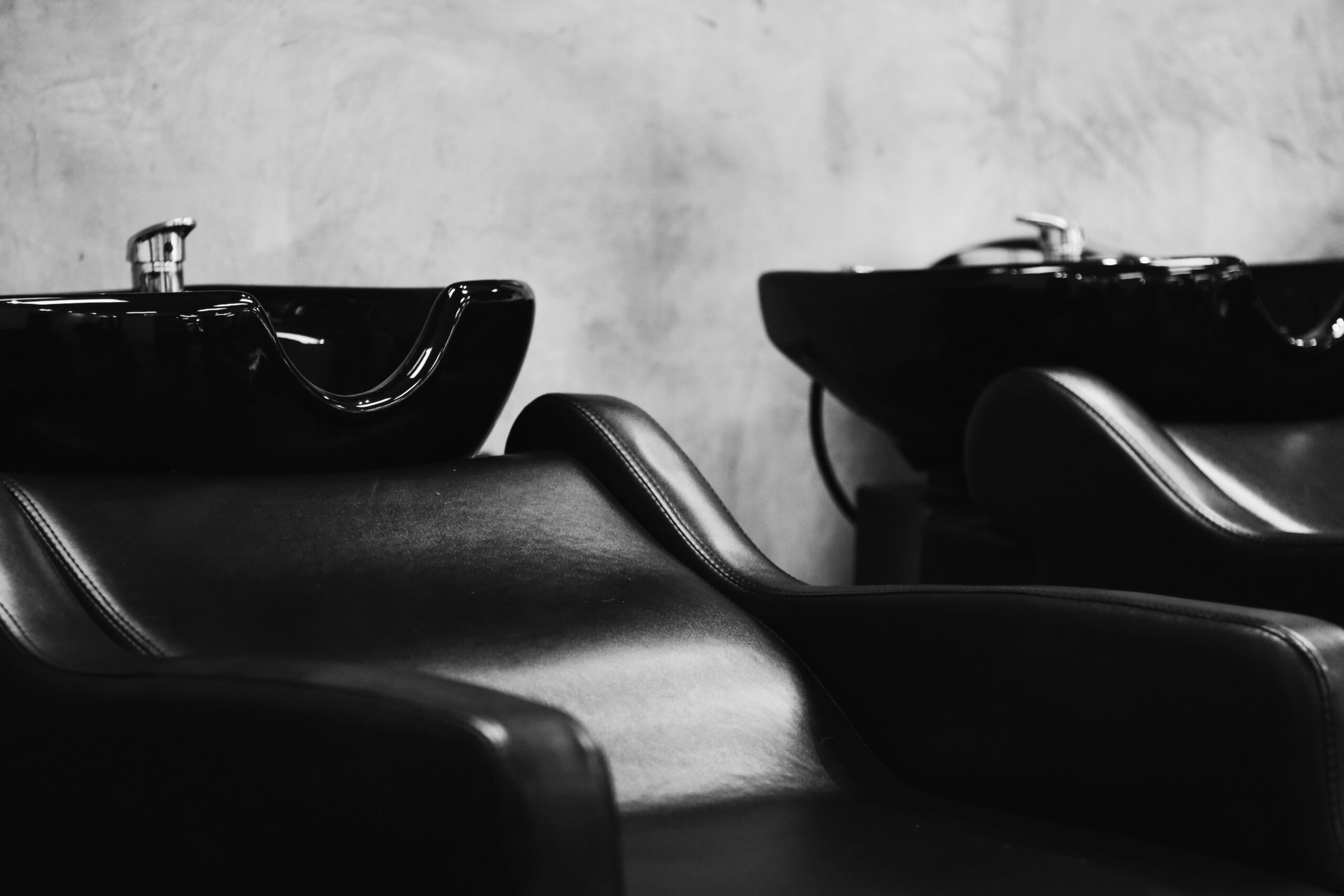
Depending on where your salon business is located, the type of water running through your taps can significantly impact the overall health of your client’s hair. In the UK, water quality and water type can differ from region to region due to variations in mineral content. If you’re curious to learn more about how the type of water around you can impact your hairdressing, then keep on reading.
💧 Discover our guide to understanding the impact of different types of water on hair health in the UK 💧
The Link Between Water Type and Hair 🚰
There are two types of water in the UK: hard water and soft water. Let’s take a look at both types in more depth.

What is Hard Water?
Many regions in the UK have hard water, which contains a high concentration of minerals such as calcium and magnesium. The mineral content in water is due to the quantity of minerals that are present in the soil as it passes through.
The South and East of England typically have the hardest water, which can make it challenging to rinse out shampoos and conditioners effectively, leaving behind residue on the hair and scalp.
If you live in a hard water area, you may need to inform your clients about the effects of hard water on the hair and recommend at-home care solutions, such as using specific products dedicated to working with hard water or installing a water filtration shower head.
Here are some specific challenges you may encounter when working with hard water in your salon…👇🏽
🛑 Mineral Buildup
Hard water can lead to mineral buildup on the hair and scalp over time. This buildup can make the hair feel heavy, look dull, and become more prone to breakage. As a professional hairdresser, you may need to use clarifying treatments to remove this buildup before working with your clients, especially if you are unsure of their hair history.
You may also enjoy Introducing OLAPLEX No.4C – Your New Favourite Clarifying Shampoo.
🛑 Dry and Brittle Hair
The minerals in hard water can strip the hair of its natural oils, leaving it dry and brittle. This can make it more challenging to style and may require extra moisturising and conditioning treatments.
🛑 Fading Hair Colour
Hard water can cause hair colour to fade more quickly. You may need to use colour-preserving products and recommend clients use water softeners or special shampoos designed for hard water to maintain vibrant hair colour.
🛑 Difficulty in Lathering Shampoo
Shampoos may not lather as well in hard water due to the mineral content. You may need to recommend sulfate-free shampoos that are less affected by hard water.
🛑 Increased Frizz and Tangling
Hair exposed to hard water can become more prone to frizz and tangling. Try specific frizz-fighting products if your clients have curly or wavy hair.
Related: The Best Hair Care Essentials To Tame Your Client’s Winter Frizz
🛑 Styling Product Residue
The mineral buildup from hard water can affect the effectiveness of styling products, leading to uneven application and hold.

What is Soft Water?
Some areas in the UK have soft water, which contains far fewer minerals than hard water. The further into Northern England and Scotland you go, the softer the water becomes. The South West of England, Western Wales and Northern Ireland also tend to have very soft water. Soft water lathers more easily with soaps and shampoos; however, this does not mean soft water isn’t without its vices.
Here are some specific challenges you may encounter when working with soft water in your salon…👇🏽
🛑 Flat and Limp Hair
Soft water, which is typically low in minerals, can make hair feel flat and limp. The absence of minerals can lead to a lack of natural texture and body in the hair, making it difficult to achieve volume and hold styles.
🛑 Difficulty in Curl Retention
Soft water can affect the ability of hair to hold curls and waves. Hairstyles that rely on curl retention may not last as long in areas with soft water, and hairdressers may need to use stronger styling products or techniques to compensate.
Discover: Top reviewed hair styling tools for your salon in 2023
🛑 Limited Texture
Clients seeking textured hairstyles may find it challenging to achieve the desired look with soft water. You may find you need to use texturising products and styling techniques to create volume and definition.
🛑 Product Overuse
Due to the lack of minerals in soft water, clients may be tempted to use more styling products than necessary to achieve volume and hold. It is best to educate your clients on proper product usage to prevent hair from becoming weighed down or greasy.
🛑 Oiliness
Soft water can leave hair feeling overly clean and, in some cases, oilier. The scalp may compensate for the lack of natural oils by producing more oil, which can affect the overall appearance and feel of the hair.
🛑 pH Balance
The pH of soft water can differ from hard water, which can affect the pH balance of hair and scalp. You may need to use pH-balanced products to maintain healthy hair and scalp conditions.

Other water additives that can have an impact on your client’s hair
Chlorinated Water
Chlorine is often added to tap water in the UK to disinfect it. Chlorinated water can strip the hair of natural oils and moisture. Regular exposure to chlorinated water can result in dry, brittle hair that is more prone to breakage. It can also lead to colour-treated hair fading faster.
Fluoridated Water
Some regions in the UK have water with added fluoride, which is intended for dental health but can also affect hair. While fluoride in water is generally not harmful to hair, some individuals with sensitive scalps may experience irritation or dryness.
Tips for Managing Water Quality and Hair Health
✅ Water Softeners
Consider installing a water softener in your salon if you have hard water. This can reduce mineral buildup on hair and make it easier to lather and rinse products.
✅ Clarifying Shampoos
Use clarifying shampoos occasionally to remove minerals and product buildup from your client’s hair. This is particularly important if they are not using a clarifying shampoo intermittently at home.
✅ Filtered Showerheads
Invest in a filtered showerhead at the backwash to reduce chlorine exposure and maintain moisture. A filtered showerhead works by passing the water through a built-in filtration system before it comes out of the showerhead. The filtration system typically consists of one or more filter cartridges that contain various filtering properties, such as ceramic balls or carbon.
✅ Balanced Hair Care Products
Choose hair care products specifically designed for the water type in your area. Some products are formulated to work better in hard or soft water and will be labelled accordingly.
✅ Conditioning
Use a good quality salon professional conditioner to help counteract the effects of hard water, making hair smoother and more manageable for your clients.
✅ Regular Maintenance
Regardless of the water type in your area, clients who maintain a regular hair care routine that includes regular treatments and haircuts will stand in the best position for stronger, more beautiful and healthy hair.
What kind of water do you have in your area?
Will you be making any changes based on what you’ve read today?
Shop Professional Hair Care At Salons Direct
Discover the Salons Direct blog, your trusted source for industry news, product releases, how-to guides and more!
You may also enjoy…
The TikTok Sensation: Which Color Wow Dream Coat is best for your clients?
Shampoo ‘Nasties’: Why Salon Shampoos Are Better For Clients’ Hair
Hair Cycling: What Is It And How To Recommend To Your Clients


